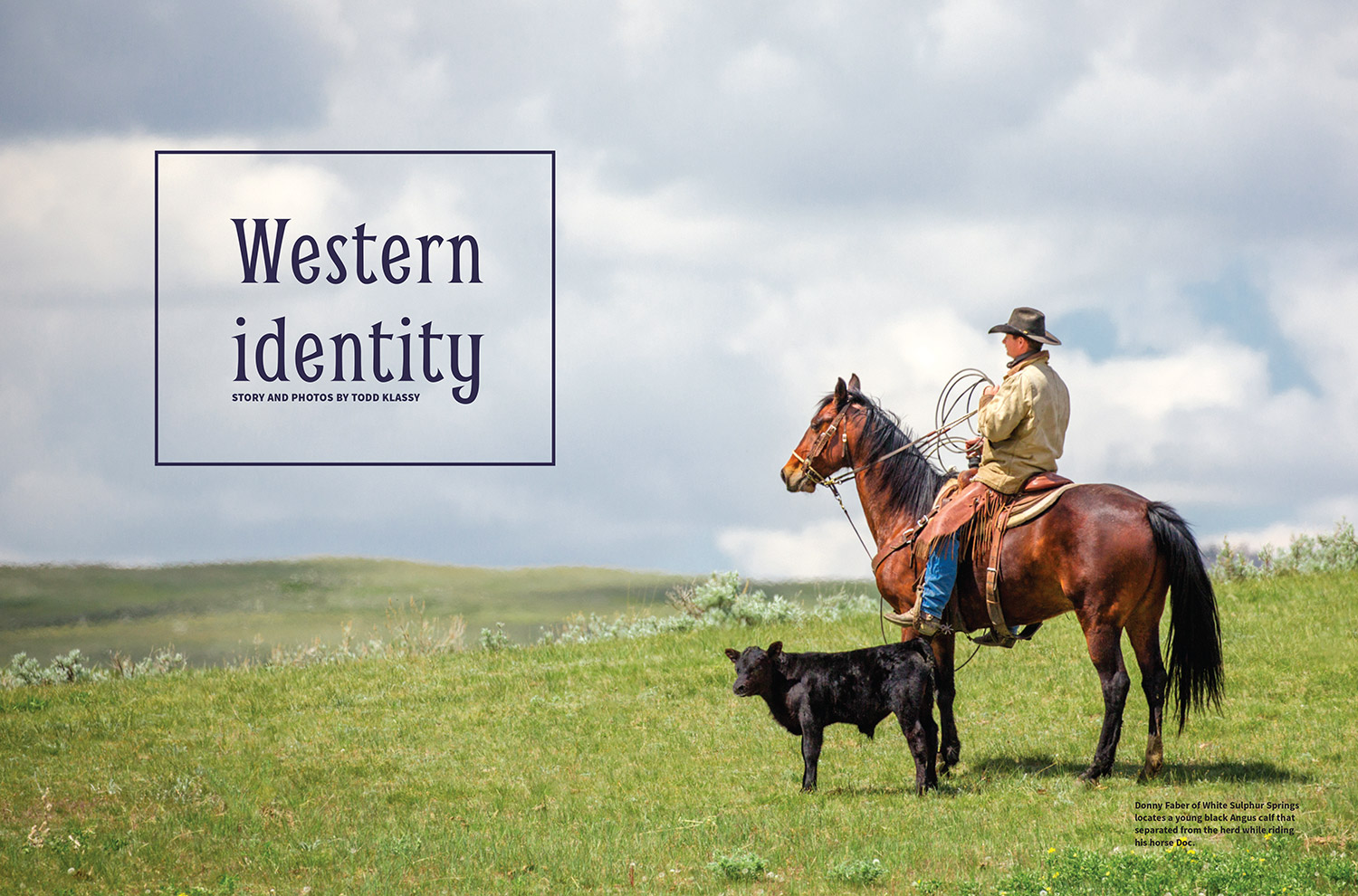A pair of John Deere combines and a tractor work together cutting wheat near Chinook, Montana. → Buy a Print or License Photo
PLEASE NOTE: This is the entire unedited article I wrote for the September 6, 2018 issue of Western Ag Reporter and those organic wheat farming photos of mine that accompanied the article. Please be sure to check out my other agricultural articles I have written and my published agriculture photos here on my blog.
An close-up of ripe wheat along the side of a field near Chinook, Montana. → Buy a Print or License Photo
The past few years have not been kind to American wheat growers. While prices have rebounded some in 2018, growers are increasingly worried about the impact of new tariffs and a possible trade war. Unfortunately, that is the life of an American farmer whose security is often at the whim of outside forces. But that’s not the case with all wheat growers.
Hinebauch Grain, Inc. is a family-owned organic farm located near Chinook, Montana. While they also farm in the neighboring county, much of their land is located on the arid plains north of the Milk River and Bears Paw Mountains in Blaine County. It is a beautiful (and desolate) part of the country where Randy Hinebauch, the patriarch of Hinebauch Grain, Inc., his wife and six children have been farming for many years. At present, three sons and their families are part of the farming operation. He attributes much of his farm’s success over the years to organic wheat.
To be certified organic by the U.S. Department of Agriculture (USDA), National Organic Program (NOP), organic farms are prohibited from the use of chemical fertilizers, herbicides, fungicides and genetically engineered seeds. Therefore without these conventional farming methods, this increases the need for mechanical tillage.
A father and sons stand proudly in front of their harvester on a farm near Chinook, Montana. → License Photo
“There is a lot more tillage involved on organic farms to keep weeds down, whereas other farmers can use chemicals to do so,” Hinebauch said. “Weed control is one of our biggest issues.”
The Hinebauch’s also use crop rotation such as peas, lentils, and alfalfa to maintain soil health and help with weed control. Most of the legumes are plowed under for green manure. Wheat and alfalfa are the primary cash crops.
While organic wheat farming requires many more hours in the seat of a tractor to work the land, Hinebauch says his operation has been largely immune from the huge swings in prices in the market. He also said the current tariff situation has had little affect to their operation because most of their customers are domestic. The demand for Montana organic wheat is primarily a west coast market while a small percentage is shipped overseas.
A tractor seeds wheat with mountains in the background near Chinook, Montana. → Buy a Print or License Photo
Only China grows more organic cereal grains than the United States. They account for approximately 19% of the world organic cereal grain production, while the U.S. produces approximately 11% according to the USDA. And while China’s output is largely destined for Europe, organic wheat produced in the U.S. stays in North America.
Hinebauch first began growing organic wheat in 1987. “We got into organics out of necessity in order to find a niche in tough economic times. We had acquired land that was virgin sod (never been exposed to chemicals) and broke the land and put it into organic production.
As it turned out, Blaine County, Montana was also well suited for growing organic wheat. It is located beyond the eastern boundary of a region in Montana known as the Golden Triangle where much of the country’s wheat and barley is grown.
Combines working late cutting wheat in a field near Chinook, Montana. → Buy a Print or License Photo
“Blaine County grows more organic wheat than any other county in America,” Hinebauch said. “It is more arid than other areas around us, so it is well suited for growing high protein, high quality organic wheat,” he said.
While farming is never easy for anyone, organic wheat has proven to be integral to the success of Hinebauch Grain, Inc. and many other growers in Blaine County and elsewhere across the country. “Although there are many challenges with weeds, hail, drought, flood, and bad decisions; we have been blessed by farming organic. We would not have three sons and their families farming with us if it had not been for organic farming,” Hinebauch said.











